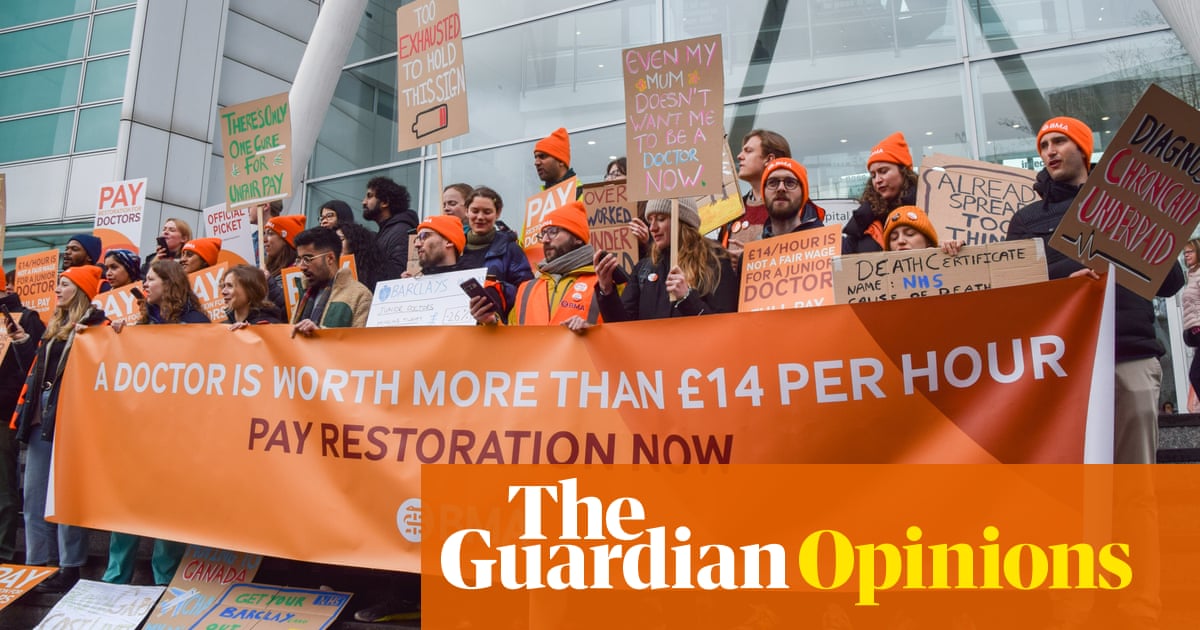
lmost a year ago, as I walked to the Sydney office of Guardian Australia from my temporary digs in Surry Hills to kick off our election night coverage, I made a couple of calls to government people to check how they were travelling. Would there be an upset victory for the Coalition?
Yes, that election night – Scott Morrison’s “miracle” win, was a year ago on Monday. Incredible really, time flying and all that. For the record, neither of my informants thought the Coalition would win, although one of the two told me Morrison was confident they would hold on. When I asked whether they were equally confident, the response was a chuckle. No, in other words.
Normally I’m ambivalent about anniversary journalism, because it can feel like going through the motions. But in this instance, there’s value. It’s worth using the peg of the election anniversary to capture some of what I’ve learned about Morrison over the past 12 months. Normally I would dive into the insights without much preamble, but the coronavirus crisis continues to mess with our shared sense of time. Because everything is topsy-turvy, we need to remind ourselves of the story so far, and the memory I shared at the start of the column is where our story needs to start.
Twelve months ago on Monday, the Coalition won an election that most of them didn’t expect to win. Given victory was a shock, the opening chapter of the Morrison government was, “What do we do now?” There was activity, but no clear direction. Quixotically, given that absence of direction, one of the first things Morrison did was deliver some sharp commentary to public servants about the importance of delivering an agenda that hadn’t yet been articulated.
Morrison did make an early priority of mental health and suicide prevention – commendable in my book. But there were two obvious vacuums through the second half of 2019: economic management and climate change.
The economy was grinding, not thriving. The Reserve Bank suggested stimulus. The government said talk to the hand. Liberal states also front-ran the climate and energy debate, pushing for the national energy guarantee – the policy that had been dumped in the frenzy of Malcolm Turnbull’s ousting – to be reinstated, a sortie that caused the energy minister Angus Taylor all kinds of angst, until that angst was replaced by the angst of the self-inflicted Clover Moore controversy.
The sense of really important things sliding, drifting, sputtering, then collided with the absolute disaster of the summer. Morrison flailed when the country most needed reassurance, failing to rise to the occasion of the most catastrophic bushfires in a century. The failure of leadership was so profound that by the middle of January, Morrison’s disapproval in the Guardian Essential poll had spiked by nine points, and Anthony Albanese pulled ahead as preferred prime minister.
The prime minister then ricocheted into the red-hot “sports rorts” controversy, which triggered an implosion inside the National party and also generated a bunch of significant questions that have not been satisfactorily answered to this day, not the least of which is: did the government act lawfully? It is infuriating that a question of such significance can linger, unanswered, for months, despite our best efforts to keep asking it.
Then Covid-19 arrived – a crisis huge enough to hurl everything wildly into the air.
It is valid to quibble about various specifics. Would Morrison have moved fast enough on the lockdown of non-essential services without forceful intervention by Gladys Berejiklian and Daniel Andrews during March? Should the government have produced the jobkeeper wage subsidy a week earlier? Would that have saved jobs?
It was chaotic for weeks on end, the stress and anxiety off the charts, but what was clear from the outset was the prime minister’s focus.
Morrison was determined to learn from his own deficiencies during the summer crisis. He wanted to do a better job with coronavirus than he had done with the bushfires, and this was a high bar to set, because the nine governments of Australia could have easily been overwhelmed by the pandemic, as other governments were.
What this shows us is Morrison can learn. Not all political leaders can, because learning requires self-knowledge. One of the primary motives for the studious learning may well have been self-preservation. But learning does require self-awareness and a measure of humility – and humility and Morrison aren’t that obvious a pairing.
So lesson number one of this past 12 months, for me: our prime minister can learn.
Related to learning is adaptation. Morrison adapts. He’s tribal – fealty matters, intrinsically he’s an “are you with me or against me” personality – but not ideological. He’s a sponge, capable of absorbing and utilising the potential around him.
What this means is Morrison’s prime ministership could go anywhere. The trajectory isn’t predictable. We aren’t looking at a leader with fixed preoccupations. We aren’t looking at John Howard, who came to public life to pursue tax and industrial relations reform. We are looking at a prime minister who likes to operate in the moment, provided he’s got a firm grip on it.
Morrison is so protean, we are looking at a prime minister who is yet to determine what sort of prime minister he will be.
He could choose to do some good. A pragmatist, and that’s what Morrison is, could dial down the partisanship that has poisoned our politics for more than a decade, choking hope and destroying trust.
He could choose to build something rather than tearing things down. He’s done that through the first phase of the Covid-19 crisis. We’ve watched him do it. We’ve watched Morrison test that version of a prime ministerial self.
But already you see pressure building in the system, the gravitation pull for everything to revert to type.
Rightwing voices in our busted media ecosystem are clamouring for the return of mindless biff. The conflict merchants are starved of material. Someone always has to be punching on, otherwise nothing is happening. Never mind if healing is happening. Healing in the polity is counterproductive to the king tide of outrage that fuels the sideshow of unhinged opinion.
Morrison has to govern in this environment, same as all his predecessors since Kevin Rudd. It’s not clear to me whether Morrison will have the will to persist in the mode of leadership he’s developed during the current crisis, whether he’s got the bottle, and more pertinently, the patience, for persistent collaboration in the national interest – or whether constraints will start to accumulate, limiting his agency.
It’s worth noting at this juncture the prime minister really doesn’t like constraints. If he encounters them, the Morrison instinct is always to decouple. If there are questions he doesn’t want to answer, the first resort is ignore them. If pain persists, he sledges the questioner. If that doesn’t work, it’s back to shutdown.
Then there’s the management of the colleagues. If pesky ideologues inside his own ranks start sounding off unhelpfully, in recent examples cartoonishly about China, or to query whether a Liberal government should be paying people not to work, Morrison says isn’t free speech wonderful. He presents like a proud parent at a school speech night: sure, George is terrible at clarinet, but how great are kids, warbling away, expressing themselves.
At one level Morrison has to indulge what he can’t control. At another level, this is a frictionless rebuke. If you listen closely there are always adults and kids in the prime minister’s “how great” parables. There is always a responsible adult, Morrison, who is in charge, and getting on with things, and then there are others enjoying their hobbies. It’s a frictionless rebuke that nimbly asserts a hierarchy.
The frictionless rebuke is different from Tony Abbott deploying Peta Credlin to keep the show on a tight leash, and the various, ultimately fruitless accommodations Malcolm Turnbull tried to make with the right to prevent a repeat of 2009.
It is too soon to say whether the Morrison management technique will be any more successful than the strategies of his predecessors. All we can say right now, 12 months on from the miracle, is it is quantifiably different.












